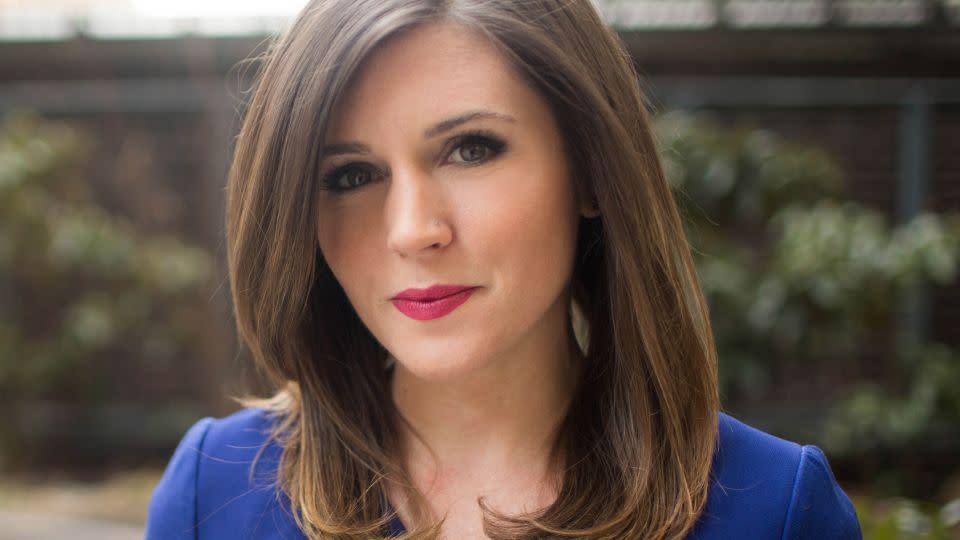Editor’s Note: Jill Filipovic is a journalist based in New York and author of the book “OK Boomer, Let’s Talk: How My Generation Got Left Behind.” Follow her on Twitter. The opinions expressed in this commentary are her own. View more opinion on CNN.
Trailblazing Sen. Dianne Feinstein, the longest-serving female senator in US history, died on Thursday night, according to a family member. She was 90 years old, and had been facing calls to step down, given her fragile health and declining memory.
While in the Senate, she became the first female member of the Senate Judiciary Committee. She was also the first woman to chair both the Senate Intelligence Committee and the Senate Rules and Administration Committee. She was the force behind the unfortunately now-lapsed federal assault weapons ban, and the 2014 torture report that revealed the many abuses of the CIA detention and interrogation program that happened during the Bush administration.
Feinstein’s legacy is, sadly, now a mixed one. She was an incredible breaker of glass ceilings, a pioneer for women in politics. And had she stepped aside and let someone else fill her shoes at the end of her career, today’s obituaries would be talking only about her many firsts and her many accomplishments. Instead, the news about her passing is punctuated with what it means for a looming government shutdown and a slim Democratic majority.
But it’s important not to lose sight of what Feinstein accomplished. She graduated from Stanford University in 1955, long before many Ivy League universities even began admitting women. In 1978, she became the first female mayor of San Francisco, after becoming the first female chair of the San Francisco Board of Supervisors.
During her time leading the Board of Supervisors, Mayor George Moscone and Supervisor Harvey Milk, the first openly gay man to be elected to public office in California, were assassinated. Feinstein found Milk’s body. And it was up on her announce the news to a shocked press. Feinstein, stunned but steady, is widely credited with leading her city out of one of its darkest eras.
The shooting was also politically galvanizing. Feinstein spent her career trying to rein in largely unfettered access to deadly weapons, in an effort to keep Americans safer from gun violence.
After 10 years in the mayor’s office, in 1992 Feinstein was one of the first women California sent to the US Senate. Her victory came as part of the “Year of the Woman,” galvanized by outrage over an all-male Senate Judiciary Committee’s treatment of Anita Hill during Supreme Court Justice Clarence Thomas’s confirmation hearings, as well as the 1992 case Planned Parenthood v. Casey, which had threatened to overturn Roe v. Wade. Feinstein criticized the confirmation hearings, and ran with abortion rights in her platform.
Feinstein forged a path that many other women would follow. When she was elected in 1992, she was one of four new female senators, who brought the total number of women in the chamber to six (two of them from California). Now, nearly a quarter of the Senate is female — still far from parity, but a sea change nonetheless. And all of the women who now represent their states in one of America’s most important halls of power owe some credit to the women who paved the way, including Feinstein.
Which is why the flaw in Feinstein’s legacy — her refusal to step down — is such a shame. It’s easy to see how that refusal came to be. Feinstein was tough — she certainly had to be, blazing as she did into so many mostly-male spaces. She was not a woman who waited her turn or stepped aside. That determination is what makes her obituaries dotted with so many firsts.
But it also kept her in her Senate seat for too long. Luckily, the Democrats have a strong enough majority that Feinstein’s death won’t throw the whole country into crisis. But she couldn’t have known that in 2018, when she chose to run again at age 85. By 2020, she was showing clear signs of health issues. And in her final term, she missed almost 100 votes because of a shingles infection.
Her refusal to step down became a potent symbol of America’s political gerontocracy, as aging political leaders largely retain their grip on power and younger people struggle to break through.
There are many lessons from Feinstein’s phenomenal life. How to push forward against the odds. How to ignore those who tell you that you can’t do something because of who you are. How to lead with integrity. How to persevere through adversity. And, crucially, one lesson that Feinstein’s death leaves us with is one that she didn’t carry out herself: when to pass the baton to the next generation.
For more CNN news and newsletters create an account at CNN.com
Credit: Source link




